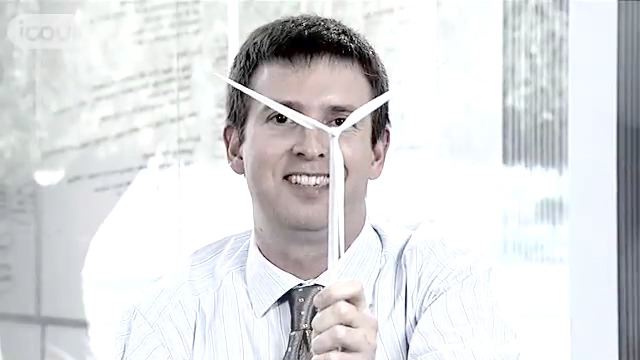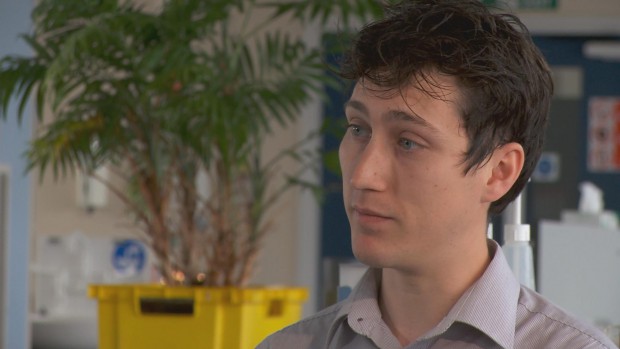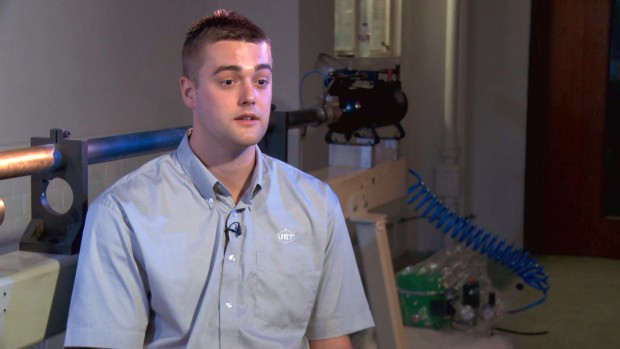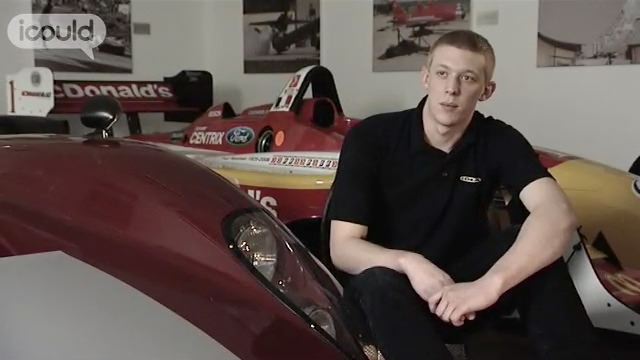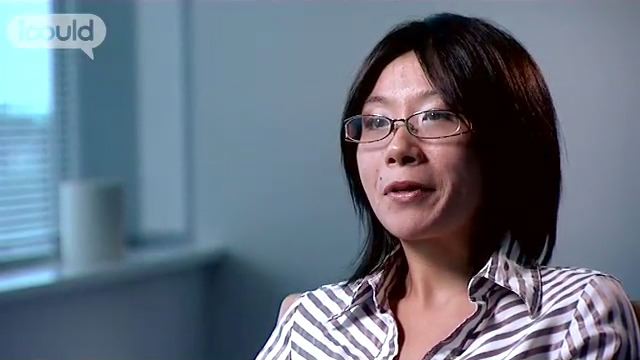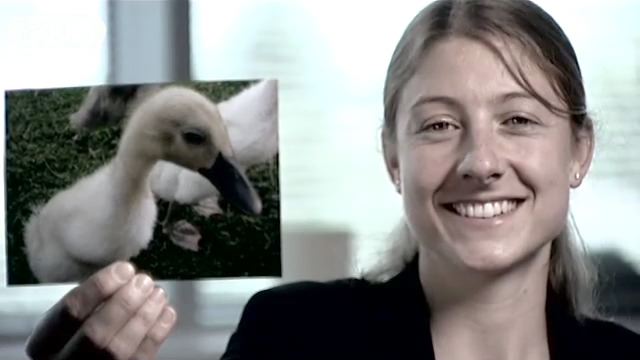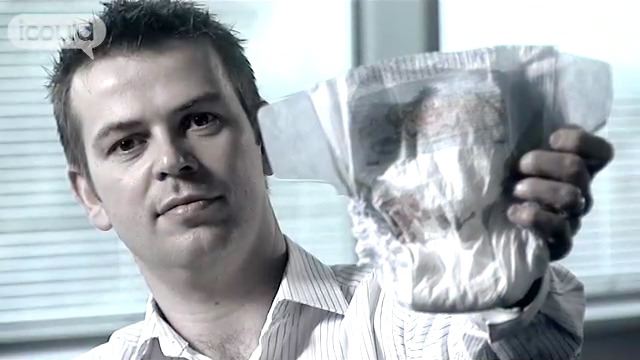Electrical Engineer
Jaguar Landrover
Allan H
My name is Allan H and I work for Jaguar Landrover as a research engineer. I’m fairly new to the role, but it involves working on show cars and technology demonstrators and new technologies and bringing them forward to get on to the cars.
I always liked sciences, and things like that I mean, back at the GCSE’s obviously you have to do your basic sciences and everything and then go on. The options I chose were like business studies and IT and geography happened to be an interest. And then from that when I started my A-Levels it was science based, very much science based and it was something that interested me but again it was the electrical side of things, the physics is electrical and stuff and that was a big interest outside as well.
I enjoyed school, it was good. I achieved good grades at GCSE and A-Level. I didn’t want to carry on through the normal progression, as everyone gets channelled through, A Levels and then university, coming out the end of it with a degree but no future as much, you don’t know where to go from there. So I decided that I’d look for alternatives.
There was some guidance offered most of it was just pointing you directly to university, that’s what schools want. They want you to do A Levels and then go to Uni. There are some alternatives, there are some ideas of the colleges and what not, virtually no information at all about apprenticeships, I had to find out for myself and it was an advert in the local paper. There were 600 people that applied and there were 39 that got on. Well the first year is solid at college so you’re doing hands-on skills, turning, milling fitting, things like that as well as a bit of further education and then you go to day release based at your department or moving around a number of departments to get a feel for the company and at the same time you’re doing further education to improve your technical knowledge as well.
I came out with a foundation degree as well as NVQs. The apprenticeship was four years, with one year solid and three years worth of day release. The foundation degree was the final two years. I’ve had a wage all the time I’ve been doing it, I’ve been paid to get a foundation degree and then I’ve then had to reapply since I’ve been out of my time to finish off my degree and the company has actually sponsored me through my whole degree now. Every year we got a pay rise provided you met your reasonable target and completed the work you were expected to do. You get your pay rises and you’ve worked on through the company and worked your way up.
They got some idea of what you’re interested in and some idea of what makes you tick, for me it was electrical and I wanted to be an electrician of some description and then from there they put you into suitable pathway and then finally they pick the job role for you. They can’t guarantee you a job role at the end of it but I think just about everyone got a job, I think there were only a couple of people that didn’t and some of those are because they decided to drop out because it wasn’t for them , it wasn’t what they wanted to do. Everyone that wanted a job and worked hard got a job.
My dad use to be a mechanic, he’s retired now, he’s always been interested in cars and there’s always been cars around so that’s definitely been an interest of mine for years. I think you’ve got to enjoy your job, if you don’t enjoy it becomes a chore to go to work and what not you know, you’ve got to find something that’s you enjoy, that you want to do and that makes you want to get out of bed in the morning and go and do it.
I work in the design enabling technology team. So that’s a small team of us and we’ve all got different strengths and we all do different things. We get information filtered down from designers of the sort of thing that they want to see on cars, the sort of things that are interesting, just new things that they fancy as well as doing some research of our own and seeing what’s out there.
I’ve recently just finished a project for an all new Jaguar and that was a technology demonstrator so that was a new technology to it, we had to work long hours trying to get this car finished, and then showed it to the seniors who really liked it and then from there make the decision whether what technologies will go ahead. You know if the research department doesn’t keep coming up with ideas then we stop getting new things on our cars and the competitors pull ahead. It’s all about trying to keep ahead of competition. The best decision I ever made was joining the apprenticeship and working my way through, definitely.
Allan has just completed his apprenticeship with Jaguar Landrover. He enjoyed the challenge of learning and earning through his apprenticeship. He loves the work he is now doing within the research team and describes his apprenticeship as the best thing he has ever done. He feels that more people should go through the apprenticeship route, as university is not the only option.
More information about Design and development engineers
The UK average salary is £29,813
There are 37.5 hours in the average working week
The UK workforce is 47% female and 53% male
Future employment
- Assesses product requirements, including costs, manufacturing feasibility and market requirements;
- Prepares working designs for steam, aero, turbine, marine and electrical engines, mechanical instruments, aircraft and missile structures, vehicle and ship structures, plant and machinery equipment, domestic electrical appliances, building systems and services, and electronic computing and telecommunications equipment;
- Arranges construction and testing of model or prototype and modifies design if necessary;
- Produces final design information for use in preparation of layouts, parts lists, etc.;
- Prepares specifications for materials and other components.
